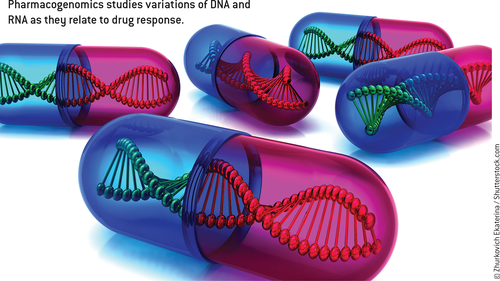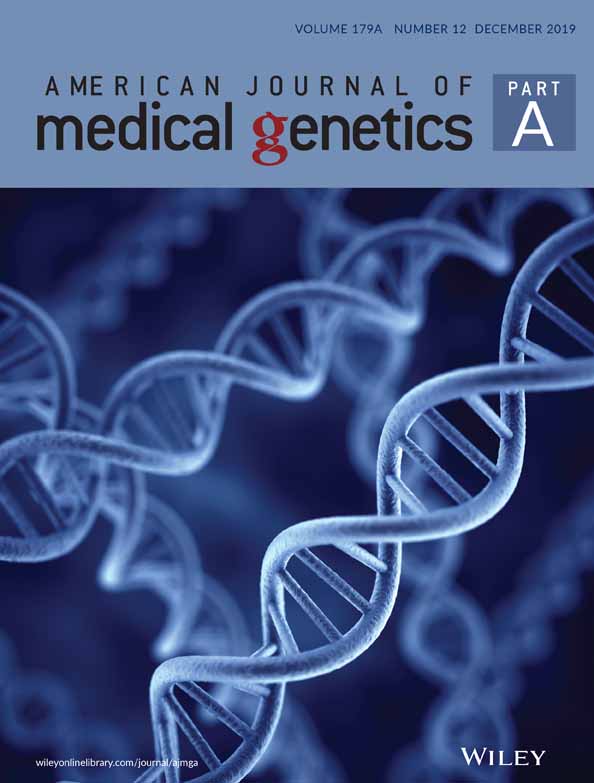The Promise of Pharmacogenomics: Genetic variation can be used to individualize drug therapy, and is an integral component of genomic medicine
“Pharmacogenetics” may sound like terminology befi tting the current era of advanced genomic study, but in fact the term was coined more than 6 decades ago. At that time, differences in drug response among individual patients had long been recognized. However, clinical testing for constitutional pharmacogenetic variants implicated in the variability of drug response is a more recent phenomenon, and current use of the term “pharmacogenomics” refers to the concept that drug response is affected by multiple variants across the genome, which can vary considerably across populations. The International Conference on Harmonisation, a worldwide consortium of regulatory agencies, defi nes pharmacogenomics as “the study of variations of DNA and RNA characteristics as related to drug response, and pharmacogenetics as the study of variations in DNA sequence as related to drug response.”
The goal of precision medicine is to approach disease treatment and prevention on an individual basis, taking into account individual patient variability in genes, environment, and lifestyle. The goal of individualizing drug therapy based on genetic variation is now viewed as within reach. As part of a series on genomic medicine, a new paper in The Lancet explores how variation in the germline genome affects drug response (Rodan et al, 2019).
It is well established that patient response to pharmaceutical agents will vary, with regard to both the drug's effectiveness of the drug and to adverse events related to the treatment. In approximately one third of cases, genetic factors contribute to serious drug-related side effects. One goal of pharmacogenomics is to define these genetic mechanisms and, ultimately, to implement genetic testing for efficacy and to reduce toxicity. In addition, a better understanding of the genetic basis for drug responses can be used to expand indications for existing drugs and to develop new products.
“The most important takeaway is that there are several pharmacogenomic tests for which there is suffi cient evidence to implement now,” says Marc Williams, MD, Director, Genomic Medicine Institute, Geisinger, Danville, Pennsylvania. “However, the only required test by the FDA is HLA-B*57:01 prior to use of the antiretroviral medication abacavir, and this is to prevent a severe life-threatening adverse event, Stevens-Johnson syndrome.”
The authors note that there are two conceptual pathways that describe the overall response to a drug. One of these is pharmacokinetics, which defi nes variability in the absorption, distribution, metabolism, and elimination of a drug and the active metabolites to, and removal from, the targeted site. The second pathway, pharmacodynamics, describes the variability in drug action that cannot be attributed to variations in drug concentrations. Instead, this refl ects variations in the interaction of an active drug with its effector molecules or other mechanisms.
Clinical Trials and Drug Development
Of particular signifi cance is the implementation of pharmacogenomics into clinical trial data. Retrospective analyses and prospective trials have been initiated to test the hypothesis that pharmacogenomically guided therapy can improve clinical drug outcomes. One example, the authors point out, is a randomized controlled trial that compared standard therapy to pharmacogenomically guided dosing in 783 patients who were initiating treatment with azathioprine or 6-mercaptopurine for infl ammatory bowel disease (Coenen et al, 2015). Patients who were TPMT intermediate metabolizers were given half the standard dose while poor metabolizers received 0–10% of the standard dose. There was no overall difference in serious adverse drug reactions or disease progression between the 2 groups. But for 78 patients with TPMT loss-of-function variants (77 intermediate metabolizers and one poor metabolizer), there was a clear benefi t of pharmacogenomically guided therapy.
Pharmacogenetics does play an important role in the drug development process. Currently, only a very small number of candidate agents that go through clinical trials ever make it through regulatory approval and into the marketplace. Drugs with targets that have been validated by human genetic studies hold a much higher likelihood of successful marketing compared to those that lack such evidence, underscoring the fact that accumulation of these data has become an increasingly integral component in the drug development process.
Identifying rare sequence variants that appear to associate with important human phenotypes has also provided the basis for new drug development. Perhaps the most notable example is PCSK9, in which gain-of-function variants were initially associated with striking elevation in LDL cholesterol and familial hypercholesterolemia. Another area in which human genetics plays a major role is in the development of new therapies for rare Mendelian diseases. In cystic fi brosis, one relatively minor mechanism for dysfunction of the CFTR protein is altered conductance of channels that traffi c normally to the cell surface. Ivacaftor, a conductance defect corrector, has been associated with improvement in functional status and is now marketed for patients who carry specifi c germline variants that have been tested in clinical trials or that show ivacaftor-mediated improvement in function in vitro.
Not There Yet
Dan Roden, MD, Sam Clark Professor of Experimental Therapeutics at Vanderbilt University in Nashville, Tennessee, sees two important applications for pharmacogenomic science. “The fi rst, and not yet widely recognized, is in drug development where there is a pretty clear emerging consensus that the likelihood of successful drug development will be enhanced if there is evidence that the drug target and disease are related by human genetics,” he says. The second is moving toward the clinical use of these data in routine care. “Why aren't we doing this already, since we know there are variants that mediate variability in the outcomes of commonly used drugs?” he asks. “The barriers are at the infrastructure level— it's cumbersome to do this, the results of widespread genetic testing for a specific variant will have implications for only some, often a small minority, of patients.”
Dr. Roden also notes that in the “hectic fl ow of contemporary care, getting a test when you prescribe a new drug is cumbersome, and the clinical community says the advantage of genotyping is not 100% and falls back on an argument that randomized trials are required for widespread implementation. The problem with randomized trials in this area is that genetic variation only affects some patients (the ones with variants) so you have huge trials where non-carriers may drown carriers.”





